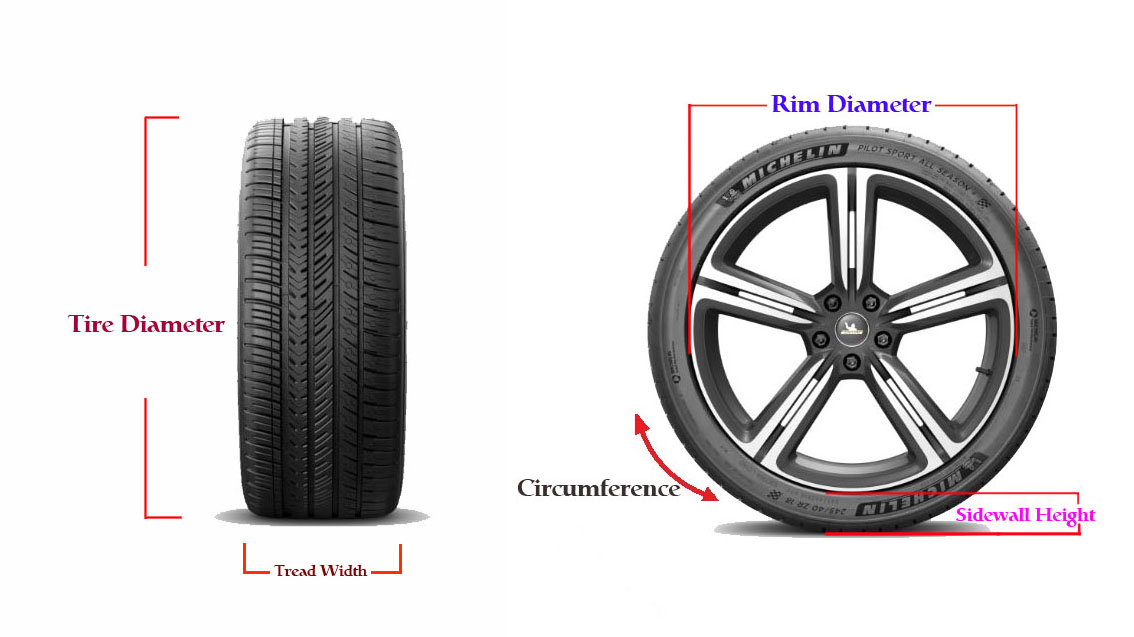Tire size Comparison
Tire Size Comparison Free

Tire 1
Tire 2
Tire Size Comparison: 265/70R17 vs 225/100R17
Both 265/70R17 and 225/100R17 tire sizes have their own advantages and disadvantages. Below, we'll compare key specifications to help you decide which size is best suited for your needs.
1. Overall Diameter
The overall diameter will be calculated based on your input values above.
2. Tire Width
Tire 1 has a section width of 265mm, while Tire 2 has a section width of 225mm.
3. Aspect Ratio
Tire 1 has an aspect ratio of 70, while Tire 2 has an aspect ratio of 100.
4. Wheel Diameter
Both tires are designed to fit a 17-inch rim.
5. Construction Type
Both tires use a radial construction (R) for durability and performance.
Choosing the Right Tire for Your Vehicle and Usage
Selecting the best tire depends on your vehicle type and how you plan to use it. Below are recommendations based on common driving needs:
Performance Vehicles
For sports cars and performance sedans, ultra-high-performance summer tires deliver exceptional grip and handling on dry roads. They excel in cornering and acceleration but may lose traction in cold temperatures. If versatility is needed, all-season high-performance tires offer a balance of grip and usability in wet or winter conditions.
Trucks and SUVs
For trucks and SUVs used for towing, LT-rated light truck tires are ideal due to their stiff sidewalls and ability to handle heavy loads.
For off-road enthusiasts, mud-terrain tires provide excellent traction with deep tread patterns and reinforced sidewalls to resist punctures.
Crossovers and Family Vehicles
For daily driving in all weather, grand touring all-season tires are a great choice. They provide a quiet and comfortable ride while maintaining reliable traction in rain or light snow.
Run-flat tires are an excellent option for drivers who often travel to remote areas, as they allow you to maintain mobility even after a puncture.
Winter Driving
In areas with harsh winter conditions, winter/snow tires offer maximum control. Their soft rubber compounds remain flexible in freezing temperatures, providing better grip and shorter braking distances. The aggressive tread patterns and sipes improve traction on ice and snow.
Conclusion
When deciding between 265/70R17 and 225/100R17, your choice should align with your vehicle's requirements and expected driving conditions. Consider factors such as your driving style, weather conditions, and vehicle specifications. Use the calculator above to see detailed comparisons of dimensions and performance characteristics.





























